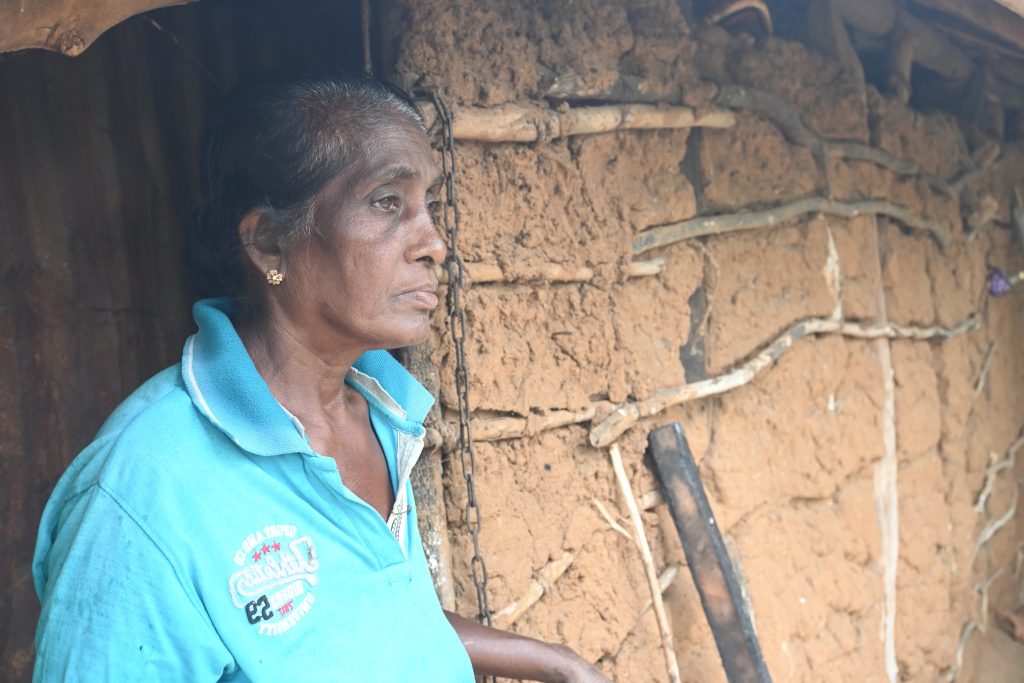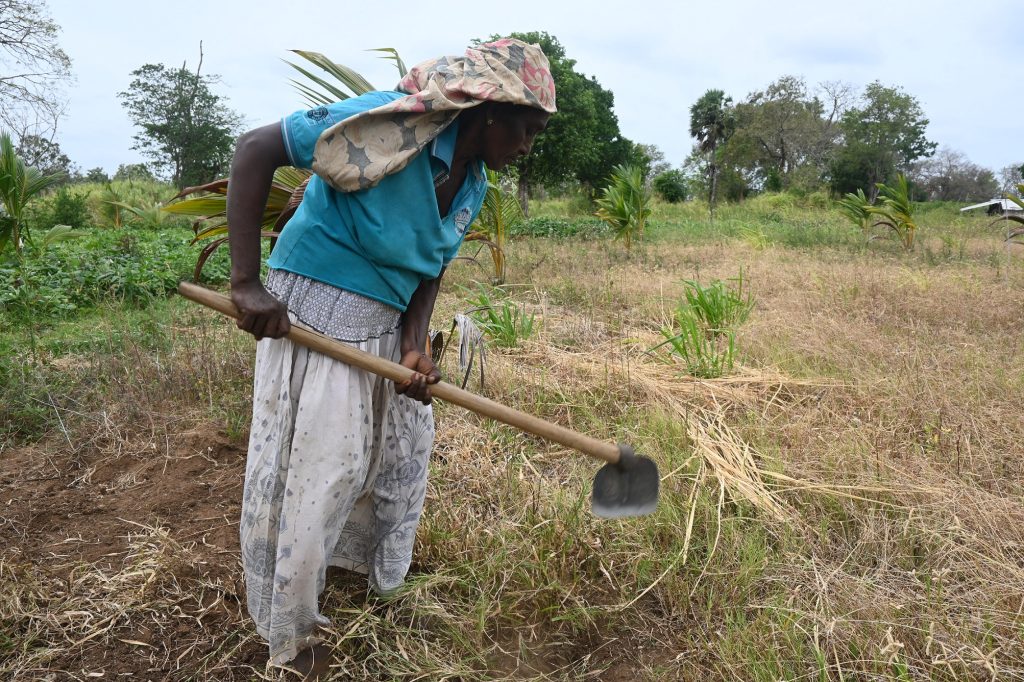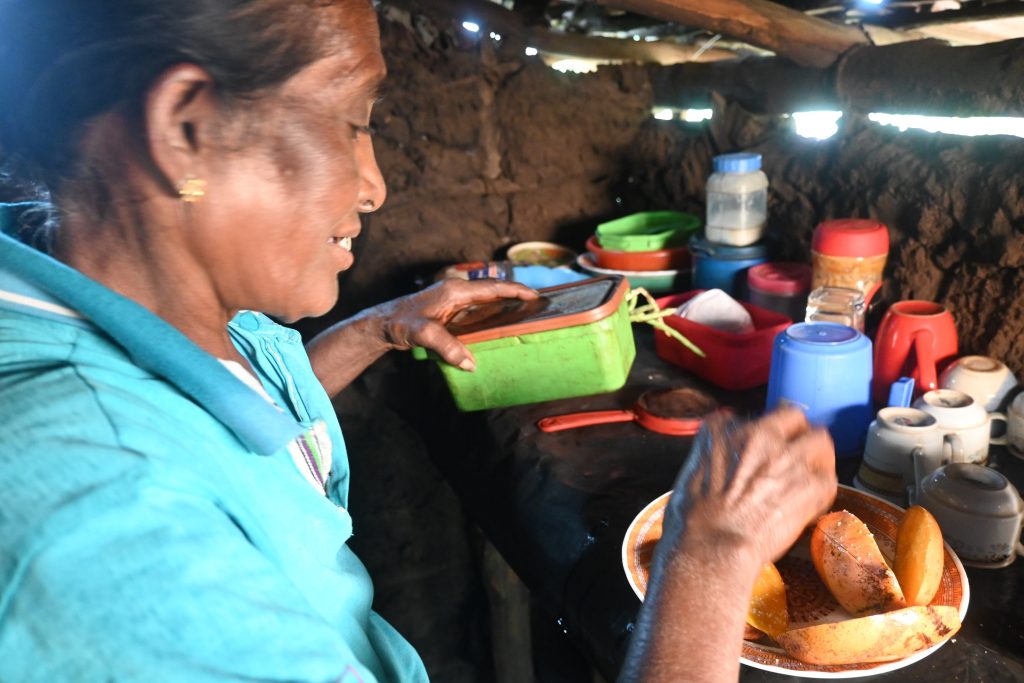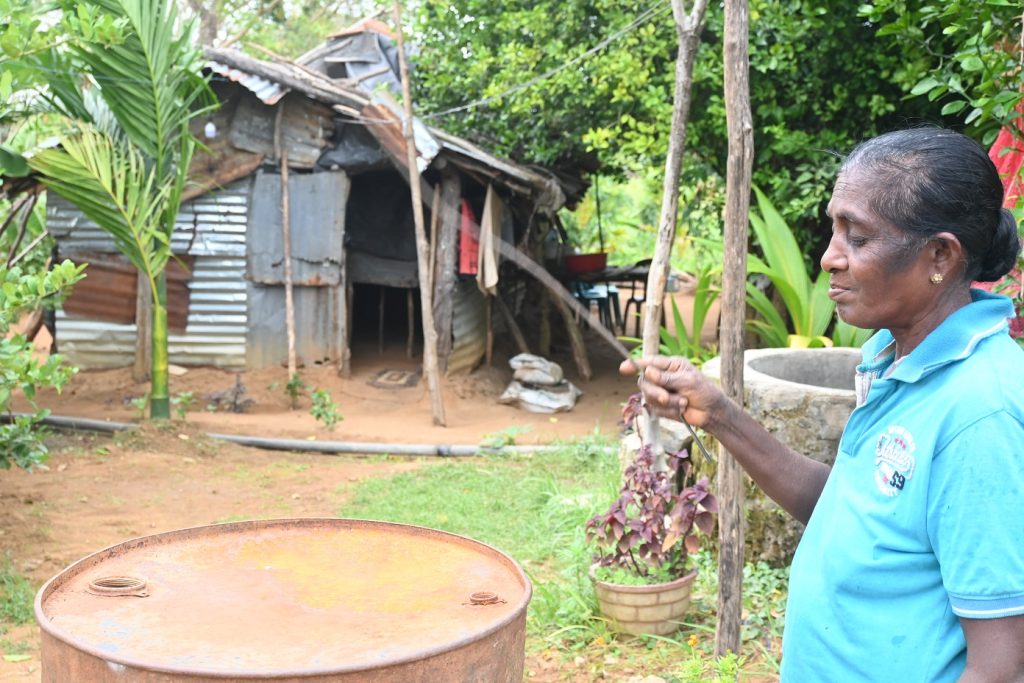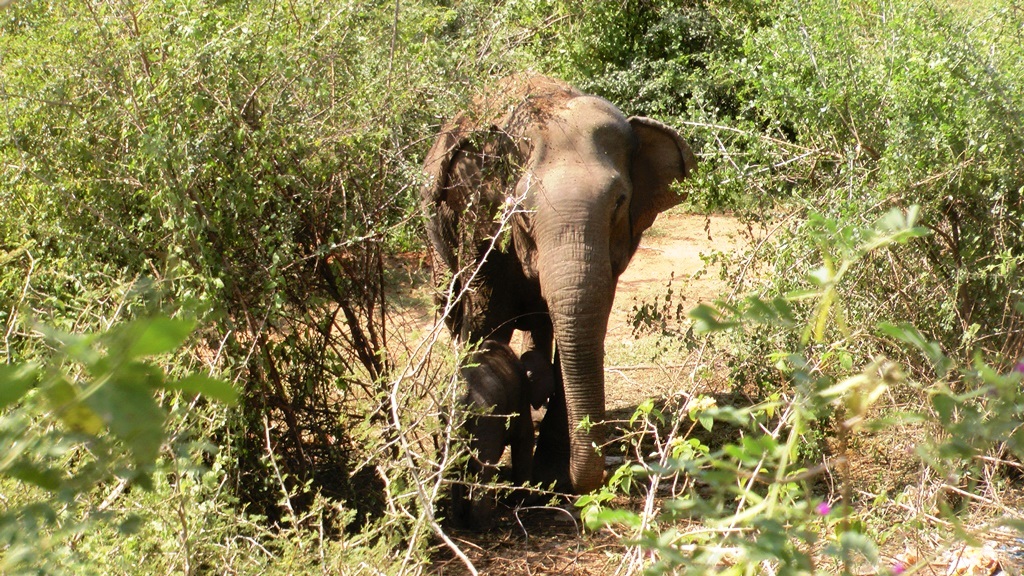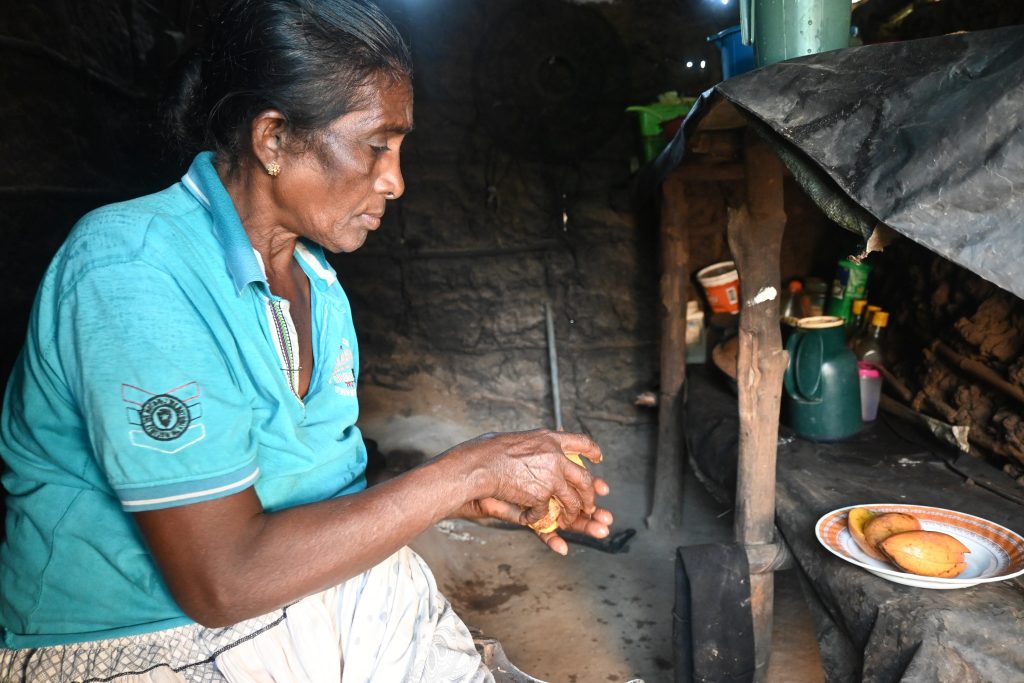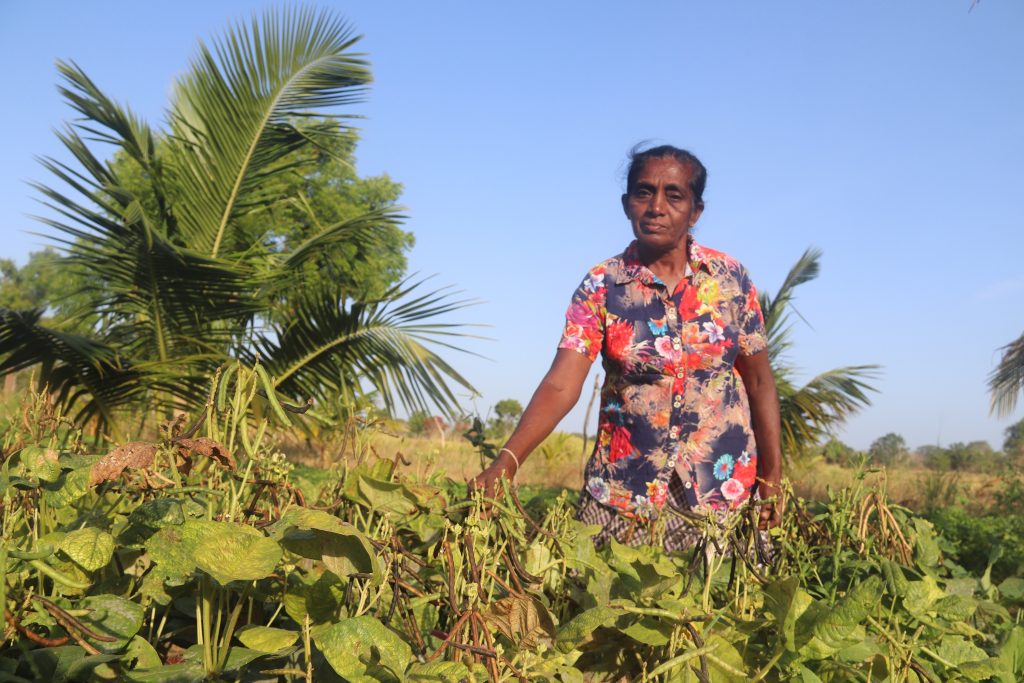Share Food and Create Hope
In Sri Lanka, Somawathie grows food on her tiny farm – a few trees, mung beans, peanuts, eggplant and more. Hungry wild elephants often come looking for food. Unless she can scare them away, they eat her crops.
Our partner MONLAR is helping small farmers like Somawathie. When she and her late husband could not afford to buy seeds and fertiliser, MONLAR taught them how to grow food at little cost. But now climate change is biting, and the elephants are coming more often, she is worried about the future. Small scale farmers and elephants need hope.
Donate now to the 2023 Christmas Appeal.
Share Food and Create Hope
In Sri Lanka’s northern plains, a woman works hard on her tiny plot of land. She grows a few banana and coconut trees and crops like peanuts, mung beans, okra and eggplant. At 63 Somawathie cannot imagine any other life.
“I live by cultivating this acre of land. I do this cultivation alone. I prepare the ground, water, and do all the other nursing alone. This is what I have to live on. I have been troubled by elephants for more than thirty years. My crops have been destroyed by elephants many times,” says Somawathie.
The wild elephants that used to visit her land only occasionally are coming more often. They eat more of the food that she has worked hard to grow. As temperatures warm and climate change begins to bite, she is worried about the future and how she and the elephants will survive.
“I am not angry at the elephants. They starve when they lose the forest that feeds them. They don’t know how to ask for food like us. What are our people doing, shooting and killing elephants? It is only when they charge, that lives are lost,” she says.
Growing Affordable Food
In the early days of their marriage, Somawathie and her late husband could earn enough income from what they grew to support their family and buy seeds and fertiliser for the next season. But as the government removed supports like fertiliser subsidies and costs rose it became impossible. When they had no money left and could not raise another loan, the future looked bleak.
Fortunately, they heard about our partner, the Movement for Land and Agricultural Reform (MONLAR). Her husband attended a local farm school and learned how to use eco-agricultural or regenerative techniques. The couple began to make their own compost, use mulch and manage the limited water available to them. They joined the local MONLAR group in their community. It was lifegiving.
“MONLAR provided us with knowledge about low-input and low-cost farming systems. It saves money and we are getting a better income now, she says.
Living with Elephants
Somawathie lives in the Anuradhapura district close to a water source used by wild elephants. They have knocked over her home and eaten countless crops. She has tried to minimise the harm they do, by planting limes and oranges to protect her home from being knocked down for example.
“Before they used to come only at night. But now it doesn’t matter if it’s morning noon or night, elephants come. The elephants came yesterday at around half past two in the afternoon. I had just come out after eating my lunch when I saw about four elephants coming towards the farm. There was no one around to ask for help at that time. I was standing by the 44-gallon drum and I tapped it with a piece of iron. At that sound, the elephants left. After beating it continuously for about half an hour, the herd of elephants left. My crop of peanuts was trampled and destroyed. Now I need to replant them,” she says.
Supporting small farmers
Somawathie lives from the land, working hard in the cool of the day. On Saturday she sells some of her produce at the local market and then buys food like rice she can no longer grow. Her body is strong from decades of hard work.
Sri Lanka is not the only country where the needs and rights of small-scale farmers have been ignored in favour of large-scale farms and big industry. Water has been redirected to large farms. Forest areas are being cleared to make way for tea and palm oil plantations.
With the loss of habitat, elephants are becoming a bigger problem. Conflict between elephants and farmers is increasing – last year (2022) 145 people and 433 elephants were killed in human elephant encounters. Somawathie says elephants and people have a right to live.
Now the climate crisis is beginning to bite. Somawathie knows what it is like to be hungry – the sore stomach, the weakness, the worry. If she cannot grow food or her crops are destroyed, she will have little to eat. Somawathie is part of MONLAR’s campaigns to protect the reserves and find ways to manage the elephants.
As climate change bites, the threat of hunger is increasing. The Food and Agriculture Organisation (FAO) estimates 122 million more people experienced hunger last year than in 2019 before the pandemic. It reports that 1.5 billion people depend on less than 10 hectares of land for their survival.
Movement for Land and Agricultural Reform
 The Movement for Land and Agricultural Reform (MONLAR) is working to create a sustainable future for all people in Sri Lanka. It connects farmers, workers, agricultural experts, conservationists, academics and activists around this common agenda. Members meet in local groups to share skills and knowledge so they can improve food production and improve livelihoods. People’s planning forums allow for regional training programmes and advocacy on issues of local concern – like managing elephants or campaigning to protect reserve lands.
The Movement for Land and Agricultural Reform (MONLAR) is working to create a sustainable future for all people in Sri Lanka. It connects farmers, workers, agricultural experts, conservationists, academics and activists around this common agenda. Members meet in local groups to share skills and knowledge so they can improve food production and improve livelihoods. People’s planning forums allow for regional training programmes and advocacy on issues of local concern – like managing elephants or campaigning to protect reserve lands.
It began in 1990 when farmer, non-governmental, and people’s organisations met to discuss the serious socio-political and economic crises the country was facing. It focuses on strengthening local people to improve their livelihoods, increase family food security and protect the environment, especially reserves. As a member of international networks, it promotes the place of small farmers in the global economy and participates in local campaigns to improve the wages and living conditions of tea estate workers and others employed in the plantation sector.
MONLAR promotes regenerative or agro-ecological approaches based on low-cost inputs, multi-cropping and empowering farmers (especially women). It runs farm schools and workshops to assist rural people to improve production levels and adapt their methods to the changing climate. Members can ask questions and learn from each other. Some local forums have established markets and one has started a cooperative store.
Watch a video
Sinharaja is a documentary produced by MONLAR, exploring what is happening to Sri Lanka’s rainforests. This important forest reserve in the southwest of Sri Lanka is under threat from development. Clearing the rainforests is threatening the habitat of many species and contributing to global warming. (11:28)
Share Food this Christmas. Support the Christmas Appeal.
Download in Word including images. View as PDF.
Thanks to Somwathie for sharing her story and MONLAR for the translations and images; to Wikimedia Commons for the map showing Anuradhapura.

